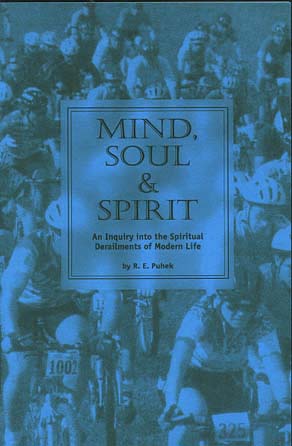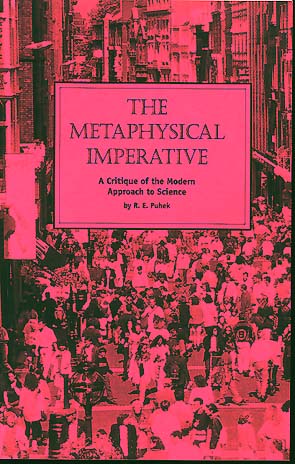Christianity, Martial Arts and Interpretation
Regarding the column about Christianity in the martial arts. It’s good of you to include the whole picture of martial arts in your magazine. But I detect a serious problem with the columnist’s approach.
Christianity is a deep, bottomless religion, like any of the Eastern religions commonly mentioned in the martial arts. But Christopher Hess’s take on it was superficial, almost as if it should’ve gone into your kid’s section. It gives no respect to *understanding* even though it was supposedly about *motive*.
You can see this when you compare it to another column in the same issue-the one about the meaning of the black belt by Keith Vargo. Vargo talks about actual growth in a person and the need for self-reflection. For an adult in the modern world, it had far more to do with motives and the hard work of salvation than ‘hearing about Jesus’ and whether or not Jesus thought the job of being a centurion was OK.
The important thing is what Bible stories are about, not what kind of jobs or sandals people had back then or Jesus’ supposed opinion about them. He didn’t have opinions! He taught. He brought things out in people, he didn’t have the slightest interest in letting people know if government employees were good guys or not.
The best indication of your understanding of any Bible story is how you use your interpretation. As mere humans, we all too often misuse it-and fall to the risk that Vargo warns about-and abuse our martial arts in one way or another. The Bible is about how we use its principles in our lives, not whether we copycat it or use it to justify certain job descriptions, of all things. In the same way, martial strategies don’t necessarily outwardly look like karate-especially at the higher levels. But the spirit is true. In the end, both martial arts and Christianity are about unity and harmony.
But in the beginning, the whole Christian point is that we’re in a fractured state and that we have to work in counterintuitive ways to see the unity in life which is hidden. It’s not that it’s not there, we just can’t see it. Given such a situation, how can any writer be so superficial about motives? Sure, boxing might possibly be worse because you might supposedly be trying to knock someone out. But playing with the rules in judo doesn’t at all mean you’re playing in virtue.
Hess’s blanket approval of certain sports and law enforcement and condemnation of self defense is such an oversimplification. Christianity isn’t about jobs or hobbies, it’s about spirit! I just had to write in, to make sure that readers don’t think any religion is that shallow.
First things first. Christianity isn’t a cult. It doesn’t have rules which supercede function or have ulterior motives. Its name is a helpful term of convenience, a pointer, like all language. It’s nothing to fixate upon, idolize or use as a spell. Christ means ‘bridge to heaven’; the cross is the symbol of the connection between the higher and the lower and price to pay every day. The Bible, and everything else in the world, is for teaching; it’s a blueprint for life, it’s not about jobs or ‘facts’. Just as the name of God can’t be spoken for the Jews, nothing in Christianity is end-all, be-all or conclusive, as far as humans can grasp. It only points. Got it? Jesus didn’t invent the word. Don’t let pamphleteers or salesmen fool you. What it means is only ‘way to live’. No more. There’s no such thing as a club in eternity. No tickets getting punched. Don’t you worry about that.
Now, it’s true that sports can be used for early inner development, but Hess doesn’t mention this. It is good enough for him that physical harm isn’t the immediate goal of some sport. He neglected the far more serious spiritual harm that can come from even the gentlest sport done for the wrong reason! Don’t neglect motive (the supposed purpose of the article!). And don’t even presume you know your own. Christianity, like the martial arts, is a humble thing. You learn as you go, no sooner.
Also, it’s true that good laws ought to be enforced in good ways. And it’s true that our egos ought not to be defended. But that has hardly anything to do with the idea that ‘martial arts in law enforcement is good’ or the practical experience of physical self defense and how this relates to Christianity!
In all religion, as you develop more is revealed, more is expected, and risks become greater. Thus duty at a black belt level (in life and in sport-one and the same!) might easily be the opposite of what Hess declares.
With growth, sport is usually needed less-only for health, duty and more refined inner development. Often one becomes a teacher, not caught up in actual competition at all, but beyond that. If sport is enmeshed in ego illusion past a certain teen-age stage, then it’s bad! From a Christian point of view, the old is always dying and making way for the new, the created makes way for the true life of the eternal, of the timeless.
With growth, bad laws and bad enforcement practice are seen for what they are and resisted or neutralized, whether through martial means or not. There’s no set rule as to when you know what to do. Martial arts in law enforcement can be good or bad. As Keith Vargo says: when you’re a black belt unexpected things are expected of you. As you advance in Christianity, as in any true way, you use wisdom instead of rote response.
As regards self defense, there is always a duty to protect those we have duty towards, which includes our physical self! That is, unless your judgement tells you there’s an opportunity to learn a greater lesson. However, most times you do what you gotta do. Most infections are no less of an attacker than a mugger, yet no sane Christian suggests not treating a life-threatening illness!
The great Christian thinker, Simone Weil, said that we are bound to nonviolence as long as we can effectively use it to uphold our duty. If the evil is stronger than your ability to use nonforce, or ‘nonviolence’, then you resist it by any means necessary.
Necessity is the key-a Christian idea that is neglected by many modern Christians. Necessity is doing neither more nor less than what fits the duty of the situation, depending on your level, with an eye to including ever more goodness in your acts as you grow, with a goal of unity not fragment. The goal of moderation and the Golden Mean is a huge, transforming challenge which is valid in every religion or martial art. It doesn’t mean ‘balance’ or ‘a little this and a little that’. It means seeing what must be done in light of ones connection with reality, with God. It means not being biased by weakness of perception, ‘flesh’, or cloudy judgement. With such awareness, the smallest, just-right (nonviolent) move is made which unlocks the whole problem.
There isn’t just one right response which works every time or one method of nonviolence. The call to nonviolence isn’t robotic surrender. It’s the action of inaction for the Buddhists. Your nonviolence when a prowler is in your house may not look like it, depending on the development of the one observing. It may appear that a prowler is getting their butt kicked!
Violence is by Latin definition ‘misuse’. Nonviolence means seeing, then preserving, the whole goodness of the situation (the root meaning of ‘good’ is unity). When you know enough to see an outwardly nonphysical solution to a problem, go for it. If you don’t, do what you gotta do. Martial arts never violate anyone except when they’re misused.
The inner meaning of not defending ourselves means not defending our egos. After serving its purpose as seed our ego is finished and tries to die so that our true self can become tree. Egos are created things which get us on our way, but need to be left behind if we want contact with the reality which lies outside our imagination. This is scary and unpopular in our culture. Because moderns are trained to maximize ego influence, involvement and encrustation. It makes us better shoppers! But it sure blinds us to the truth and prevents our further growth. We’re admonished in Christianity to let it go. This especially means non-defense of image or identity. (This has huge importance for us moderns!) Non-defense absolutely does not mean surrendering your physical body or anyone or thing you’re protecting to the first abuser who comes along.
Hess’s approach is misleading and very dangerous. It gets people hurt!
Oh, and remember: evil people never think they’re bad. They’re sure they’re good. This means you. Nazis are never obvious. Nor is the ‘Nazi’ part of our ego. Usually it’s just justifying itself. So be careful! The right time to use martial arts is never clear, not for law enforcers, homeowners, or athletes. This is a hard-work, Christian type of call to a life of watchfulness, which, as Keith Vargo has the wisdom to say, the black belt brings with it.
‘Hearing about Jesus’, in the sense that Hess uses it, can be so superstitious that it can create quarrels instead of solve them. This is because it misses the point of motive and understanding when one hears such things. (Even though that’s what the article was supposedly about.) It can be life-changing to hear about Jesus, but if your state isn’t right it can be malarkey. People should realize that Christianity is deeper than Hess’s article suggests.
The tempting source of superficial thinking comes from mass society, as well as from the lower parts of ourselves. The mass society, ‘consumable’ part of anything needs to be lowest common denominator, uniform, single-level, and describable in order for it to function smoothly. The needs of such forces don’t have anything to do with the uncertainties and richness of humanity, the martial arts or Christianity!




